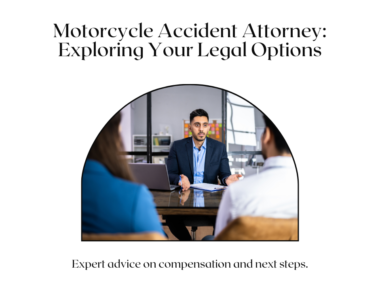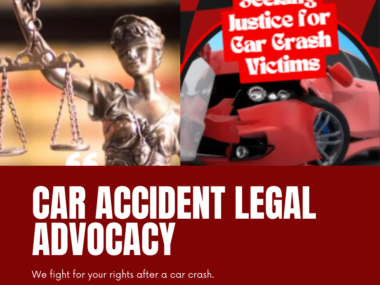Introduction
Car accidents are a frequent and often devastating occurrence that can lead to severe injuries, significant property damage, and profound emotional distress. The aftermath of a car accident can be overwhelming, as victims are required to manage insurance claims, medical treatments, and potential legal battles. However, in this challenging time, the expertise of a car crash attorney can provide a much-needed sense of relief. This article explores the critical role of car crash attorneys and the processes they undertake to ensure justice and compensation for their clients, offering a beacon of hope amid uncertainty.
Understanding Car Accidents and Their Implications
Prevalence and Impact of Car Accidents
Car accidents are alarmingly common, with millions occurring globally each year. According to the National Highway Traffic Safety Administration (NHTSA), there were over 6 million police-reported crashes in the United States alone in recent years. These incidents often result in a wide range of outcomes, from minor injuries to fatalities. The financial impact is also significant, with medical expenses, vehicle repairs, and lost productivity costs.
Common Causes of Car Accidents
Several factors contribute to the frequency and severity of car accidents, including:
- Distracted Driving: Activities such as texting, changing music, or using in-car technologies divert attention from the road. Distracted driving can be classified into three categories: visual distraction (taking eyes off the road), manual distraction (taking hands off the wheel), and cognitive distraction (taking the mind off driving). She was texting while driving, which involves all three types, making it particularly dangerous.
- Speeding: Excessive speed reduces reaction time and increases the severity of crashes. Speeding is a leading cause of fatal accidents, as it impairs the driver’s ability to respond to sudden changes on the road.
- Drunk Driving: Alcohol impairs judgment, coordination, and reaction times, making it a leading cause of serious accidents. Drunk driving is entirely preventable and remains a significant threat to road safety.
- Reckless Driving: Aggressive driving behaviors such as tailgating, weaving through traffic, and ignoring traffic signals contribute to accidents. These behaviors significantly increase the risk of collisions and injuries.
- Weather Conditions: Rain, snow, fog, and ice can create hazardous driving conditions. Drivers must adjust their driving habits in adverse weather to prevent accidents.
- Poor Road Conditions: Potholes, inadequate signage, and poorly maintained roads contribute to accidents. Local governments are responsible for maintaining road safety, but failures in this duty can lead to severe consequences.
The Role of Car Crash Attorneys
Initial Consultation and Case Evaluation
The first crucial step when beginning a car accident case is to schedule an initial consultation with a qualified car crash attorney. This meeting allows the attorney to gather essential information about the accident, including details about the circumstances, damages, and any injuries sustained. Additionally, the attorney will discuss the legal process, potential outcomes, and the client’s rights. This initial consultation is an essential first step in building a solid case and understanding the options for seeking compensation.
- Listen to the Client’s Account: Understanding the details of the accident and the client’s perspective. This involves gathering all pertinent information, including the circumstances leading to the crash and any immediate actions taken.
- Assess the Case Merits: Based on the information provided, the attorney will determine whether there is a viable claim and evaluate the potential for success based on available evidence and applicable laws.
- Discuss Legal Options: Outline the potential legal paths and the client’s expectations. This includes discussing possible outcomes and strategies to achieve the best result for the client.
Gathering and Preserving Evidence
Meticulously gathering evidence is not just a part of building a solid case; it’s a commitment to ensuring justice. This includes obtaining detailed information about the circumstances of the accident, collecting eyewitness testimony, gathering police reports, documenting any injuries sustained, and obtaining medical records. A skilled car crash attorney will leave no stone unturned in this process, carefully analyzing all the evidence to construct a compelling case on behalf of their client, instilling confidence in the legal proceedings.
- Collect Police Reports: Obtaining official records of the incident, which often contain crucial information. Police reports provide an objective account of the accident and may include observations from the responding officers.
- Secure Medical Records: Documenting injuries and treatments to establish the extent of harm suffered. Medical records are essential for proving the accident’s impact on the victim’s health and well-being.
- Gather Witness Statements: Collecting testimonies from people who saw the accident. Witness statements can corroborate the victim’s account and provide additional perspectives on the incident.
- Photographic Evidence: Capturing images of the accident scene, vehicle damage, and injuries. Photographs provide visual proof of the conditions and consequences of the crash.
- Accident Reconstruction: In some cases, experts are consulted to recreate the accident scenario for better understanding and evidence presentation. Accident reconstruction can clarify the sequence of events and identify the responsible parties.
Negotiating with Insurance Companies
Insurance companies often seek to reduce the money they pay for claims, which is where the expertise of a car crash attorney comes into play. They will work diligently to ensure you receive fair compensation for your injuries, damages, and suffering. This involves advocating on your behalf, gathering evidence, and negotiating with the insurance company. They will take your case to court to fight for your deserved compensation, showcasing their commitment to your best interests if necessary.
Handle Communications
Managing all interactions with insurance adjusters to protect the client’s interests is crucial. This ensures the client does not inadvertently say something that could harm their case.
Evaluate Settlement Offers
Assessing whether an offer is fair and advising the client accordingly is an essential part of the process. The attorney will use their knowledge of similar cases to determine if the proposed settlement is adequate.
Negotiate Settlements
Achieving the best compensation without going to court can save time and reduce the client’s stress. Effective negotiation can also result in a favorable outcome more quickly and with less stress.
Litigation and Trial Preparation
The matter may proceed to court if an equitable agreement cannot be reached. If this occurs, the attorney will take the necessary steps to prepare for litigation, including gathering evidence, filing court documents, and representing the client’s interests in legal proceedings.
File the Lawsuit
Initiating the formal legal process clearly indicates the gravity of the claim and underscores the client’s commitment to pursuing accountability and fairness through legal channels.
Prepare for Trial
Trial preparation involves gathering evidence, preparing witnesses, and developing a strategy. It also involves extensive work to ensure the case is presented effectively in court.
Represent the Client in Court
Advocating for the client’s rights and presenting the case to a judge or jury requires skill and experience. The attorney will use their expertise to argue the case and seek a favorable verdict.
Post-Trial Actions
After a verdict or settlement, there may be additional steps, including the disbursement of funds to the appropriate parties, finalizing any legal documentation, and ensuring compliance with any court orders or agreements.
Collecting the Award
Ensuring the client receives the agreed-upon compensation may involve negotiating with the defendant’s insurance company or pursuing additional legal actions if payment is not made promptly.
Addressing Liens
Resolving any outstanding medical or insurance liens against the settlement is necessary before the client can receive compensation.
Providing Ongoing Support
The attorney’s role includes offering guidance on managing the financial and emotional aftermath of the accident. The attorney may also assist with setting up trusts or other financial arrangements to ensure long-term care and support.
Critical Factors in Car Accident Claims
Determining Liability
Establishing who is at fault is crucial in a car accident case. Various factors are considered to determine fault, including the drivers’ actions, traffic laws, road conditions, weather, witness statements, and any available video footage or photographs. Identifying the responsible party is essential for insurance claims and legal proceedings.
- Negligence: Whether a driver failed to exercise reasonable care. Negligence can be shown through speeding, running a red light, or failing to yield the right of way.
- Violation of Traffic Laws: If a driver broke traffic rules leading to the accident. Traffic violations are often clear indicators of fault.
- Vehicle Defects: Situations where mechanical failures or design flaws contributed to the accident. Manufacturers and maintenance providers may be liable for accidents caused by vehicle defects.
- Road Conditions: Poorly maintained roads or inadequate signage. Local governments and contractors responsible for road maintenance can be held accountable for accidents resulting from unsafe road conditions.
Calculating Damages
In car accident cases, compensation can cover various damages, such as medical expenses, lost wages, property damage, pain and suffering, and emotional distress.
- Medical Expenses: Current and future medical costs related to the accident. This includes hospital stays, surgeries, rehabilitation, and ongoing care.
- Lost Wages: Income lost due to an inability to work. Compensation can cover both past and future lost earnings.
- Property Damage: Repair or replacement costs for the vehicle. This also includes compensation for any personal property damaged in the accident.
- Pain and Suffering: Compensation for physical pain and emotional distress. This is often the most significant portion of a settlement or verdict and requires careful documentation of the impact on the victim’s life.
- Loss of Consortium: This impacts relationships with family members and compensates for the loss of companionship, affection, and support experienced by the victim’s loved ones.
Punitive Damages
In cases involving gross negligence or intentional misconduct, punitive damages may be awarded to punish the wrongdoer and deter similar behavior in the future. These damages are intended to serve as a warning to others and are awarded in addition to compensatory damages.
The Importance of Expertise and Experience
Specialization in Car Accident Law
Car accident law is complex and requires specialized knowledge. Attorneys in this field must be well-versed in:
- State and Federal Traffic Laws: Understanding the legal standards and regulations governing road use. Each state has its traffic laws, and federal rules also apply to certain aspects of driving.
- Insurance Law: Navigating the intricacies of insurance policies and claims processes. This includes understanding the various types of coverage and how to maximize compensation from multiple sources.
- Medical Knowledge: Recognizing the implications of various injuries and the necessary treatments. Attorneys must understand medical terminology and the long-term impact of injuries to argue for appropriate compensation effectively.
Proven Track Record
An attorney’s experience and track record of successful cases are crucial factors to consider when evaluating their capability. Clients should seek out legal professionals with a proven history of handling similar cases and achieving positive outcomes for their clients. In addition to experience and success rates, it’s essential to consider the attorney’s expertise in the specific area of law relevant to the client’s needs, communication style, and approach to client representation.
- Settlement Success: A history of securing fair client settlements demonstrates the attorney’s ability to negotiate effectively with insurance companies.
- Trial Victories: Successful outcomes in court cases indicate readiness to litigate if necessary. An attorney who is fearless about going to trial can often secure better settlements for their clients.
- Client Testimonials: Positive reviews and references from past clients provide insight into the attorney’s professionalism, communication skills, and dedication to their clients.
The Financial Aspect: Maximizing Compensation
Types of Compensation
Compensation in car accident cases is typically categorized into economic and non-economic damages:
- Economic Damages are quantifiable losses such as medical expenses, lost wages, and property damage. Economic damages are more straightforward to calculate and document, making them a critical component of any claim.
- Non-Economic Damages: These include pain and suffering, emotional distress, and loss of consortium, which are more subjective but equally important. Non-economic damages compensate for the intangible losses experienced by the victim and their family.
The Role of Punitive Damages
Punitive damages may be awarded in cases involving egregious conduct, such as drunk driving or reckless behavior. These are intended to punish the wrongdoer and deter similar conduct in the future. Punitive damages can significantly increase the total compensation awarded to the victim.
Structured Settlements
Sometimes, compensation may be structured to provide periodic payments over time rather than a lump sum. This can be beneficial for managing long-term medical expenses and financial stability. Structured settlements ensure the victim has ongoing financial support to cover future needs.
Leveraging Technology in Car Accident Cases
Accident Reconstruction Software
Advanced software tools can recreate the accident scene, providing a visual and analytical perspective that can be crucial in court. Accident reconstruction can clarify the sequence of events and identify the responsible parties.
Electronic Data Recorders (EDRs)
Modern vehicles often come equipped with EDRs, which record data such as speed, brake usage, and seatbelt status at the time of a crash. This data can be invaluable in proving fault. EDR data objectively records the vehicle’s performance and driver actions leading to the accident.
Surveillance and dashcams
Video footage from traffic cameras, nearby businesses, or dashcams can offer clear evidence of the accident’s circumstances. Video evidence is highly persuasive in court and can corroborate witness statements and other evidence.
Medical Technology
Sophisticated medical imaging and diagnostic tools can provide detailed evidence of injuries and their impact, strengthening the compensation case. Advanced medical technology ensures that injuries are thoroughly documented and accurately represented in the claim.
Preventative Measures and Advocacy
Policy Advocacy
Car crash attorneys often advocate for safer driving policies and regulations. This includes lobbying for stricter laws on distracted driving, DUI, and seatbelt use. By advocating for policy changes, attorneys help create a safer environment for all road users.
Public Education
Attorneys may participate in public awareness campaigns to educate the public about safe driving practices and the legal consequences of negligent behavior. Public education efforts aim to reduce the incidence of car accidents and improve overall road safety.
Community Engagement
By engaging with community organizations and safety groups, attorneys help foster a culture of safety and responsibility on the roads. Community engagement initiatives promote safe driving habits and raise awareness about the dangers of reckless behavior.
Case Studies: Real-World Applications
1. Distracted Driving Accident
A client was involved in a severe accident caused by a distracted driver who was texting. The car crash attorney:
- Gathered Evidence: Collected phone records to prove the driver was texting during the accident. Phone records provided clear evidence of distracted driving.
- Negotiated with Insurance: Secured a settlement covering medical expenses, lost wages, and pain and suffering. The attorney’s negotiation skills ensured that the client received fair compensation.
- Public Awareness: The attorney used this case to highlight the dangers of distracted driving through local media. By raising awareness, the attorney contributed to reducing distracted driving incidents.
2. Drunk Driving Incident
Another client was hit by a drunk driver, resulting in significant injuries. The attorney:
- Pursued Punitive Damages: Filed for punitive damages due to the driver’s reckless behavior. Punitive damages were awarded to punish the drunk driver and deter future misconduct.
- Worked with Medical Experts: Documented the long-term impact of the injuries. Medical experts provided detailed reports on the client’s condition and future needs.
- Trial Success: When the insurance company refused a fair settlement, the case went to trial, resulting in a substantial verdict in favor of the client. The attorney’s trial preparation and advocacy skills were critical to the successful outcome.
3. Multi-Vehicle Collision
In a complex multi-vehicle accident, determining liability was challenging. The attorney:
- Reconstructed the Accident: Worked with experts to reconstruct the crash and establish fault. Accident reconstruction provided a clear picture of the events leading to the collision.
- Handled Multiple Claims: Negotiated with several insurance companies to ensure comprehensive compensation. The attorney coordinated with multiple parties to secure fair settlements for all involved.
- Advocated for Road Safety Improvements: Used the case to advocate for better road maintenance and clearer signage in the accident-prone area. The attorney’s efforts contributed to improvements in local road safety.
Conclusion
Car accidents are life-altering events that can leave victims with physical, emotional, and financial burdens. A car crash attorney is crucial in navigating the legal complexities, ensuring justice, and securing fair compensation for those affected. These legal professionals provide essential support during challenging times, from initial consultations and evidence gathering to negotiating with insurance companies and representing clients in court.
By understanding the causes, legal challenges, and processes involved in car accident claims, victims can make informed decisions and secure the reliable legal representation necessary to pursue justice and rebuild their lives. If you or a loved one has been involved in a car accident, don’t hesitate to seek professional legal assistance. A dedicated car crash attorney will provide the expertise, support, and relentless advocacy needed to secure fair compensation and justice for the damages suffered.






2 comments